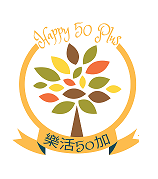Those of us who are 1.5 generation often have some fluency in our heritage language, in my case Mandarin Chinese. Because I left Taiwan before receiving education in the Chinese school system, at home I grew up speaking “Chinglish” – a smattering of Chinese words scattered among my sentences in English. I was what is called a “functional illiterate”: I could speak some Mandarin Chinese, but could not read it nor write it.
At some point before entering college, I decided that I wanted to learn Chinese. I had already taken about five years of French in middle school and high school so I felt comfortable taking another “foreign” language. At the start of freshman year in college I enrolled in a Chinese class. During my meeting with the professor, he said, “You speak some Chinese, I’m going to put you in Chinese 201.”
OMG! That was one of the most difficult periods in my life! At that time in American colleges the Chinese language was taught using the Wade-Giles romanization system for Mandarin Chinese. Our textbook was selections from the writings of Mao Tse-tung and the text was in simplified characters! So, I was actually learning two new languages – the romanization system AND the Chinese! (And the reading selections were dry, oh so dry…)
I chose to spend my junior year of college studying in Taipei, returning to the place of my birth for the first time in my life. I attended classes at The Mandarin Training Center of National Taiwan Normal University and made a lot of progress in my language studies. And, of course, living in Taipei meant complete immersion in the language, which certainly accelerates the learning process.
A few years later, my Mom began writing down reminiscences of her life in China. One essay, in particular, interested me: it was about the night in October 1948 when she had to make the life-changing decision to leave her hometown and her family as that city was going to fall into the hands of the Communist Army.
To force myself to learn more Chinese words, I decided to translate this essay into English. And because my siblings had married non-Chinese speaking spouses, I also wanted to make our family story available in English.
Translating this essay took time and it was a laborious process – checking up words I didn’t know in the Chinese-to-English dictionary as well as trying to find just the right word in English (what the French call le mot juste) without losing the meaning of the original Chinese character.
After all these years, this translation into English of Mom’s essay has been shared not only in our family but also with many friends. They all praise Mom’s great writing style and how vivid her descriptions are of the chaos of that era of the Chinese civil war. I am so glad that I have been able to make available her life story to an English-reading audience.
In the early 1990s, my employer published a collection of the family stories of staff. I submitted my translation of Mom’s essay and it was included in this volume. Today, I treasure my copy because the title of Mom’s essay, “別“ (“Parting”), is printed using the brush-and-ink calligraphy written by my late Father.
I do not have native fluency in Mandarin Chinese but I have worked hard to be as bilingual as I can. Studying languages other than English has brought such richness to my life. I certainly agree with what the emperor Charlemagne is credited with saying: “To have another language is to possess a second soul.” (Avoir une autre langue, c’est posséder une deuxième âme.”)

